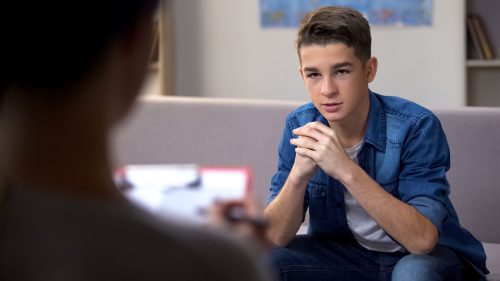Forensic Interviews

We listen . . . Children have a voice.
We want children and their families to heal, but to do this we need to start with the child or teen’s formal and detailed statement of what happened. This statement is called a forensic interview or extended forensic interview, depending on the age and level of development of the child. Our goal is to do the best we can to find out what happened in a manner that is respectful of the child and as comfortable as possible for children and their families. It’s set in a child-friendly setting where what is disclosed can be legally defended in our courts. This interview is digitally recorded and is made available to law enforcement, child abuse investigators, prosecutors and medical/mental health professionals in order to reduce the number of times a child is interviewed about their abuse. However, the interview does not replace the child or teen’s testimony if the case goes to trial. Our forensic interviewers are specially trained with an understanding of child and adolescent development. They use open-minded, non-leading questions to ensure that children explain their experiences in their own words.
We know that one of the first important things to accomplish is the interview, but what do we do after that? ... Advocacy...
What should Children be told?
Children are most comfortable when they have been informed about what to expect. It may be helpful to explain the interview at Child Safe by saying, "You and I are going to Child Safe. It is a place where kids go and are able to talk to someone. The person you are going to talk to talks to lots of kids and it is always important to tell the truth there." You should not tell your child what to say, but simply encourage your child to tell the truth. Some children may need to be reassured and told that they have done nothing wrong.
What to expect when you arrive.
When the child and caregiver arrive for the appointment, the Child Advocate will greet them and give them a tour of the center. Both are able to see the interview room and the cameras are discussed and the child is made aware of their locations. During the interview, the Child Advocate will meet with the parent or caregiver separately and then again after the interview is complete along with investigators to discuss the child's interview, the next steps in the investigation process, and to answer any remaining questions.
